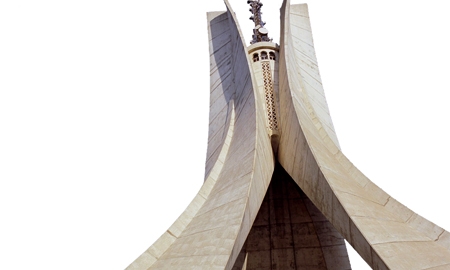The native inhabitants, dubbed Berbers by the Romans, have withstood waves of Phoenicians, Romans, Vandals, Byzantines, Arabs, Turks and finally, French visitors and invaders.
Modern history began in the 16th century with the arrival of the Ottoman Empire, which chose Algiers as the principal center of Ottoman power for the Maghreb. In 1830, France invaded the region in response to the Algerian Dey’s supposedly insulting of the French consul.
During the French colonization period, those who ruled in politics and business were colonists (called pieds noirs, or black feet, by the locals). It wasn’t until the 1950s that the Algerians organized themselves into a formalized resistance group, called the National Liberation Front (FLN). Between 1957 and 1962 the FLN’s army was successful at hit-and-run guerrilla warfare tactics. A cease-fire was signed in 1962 and in a referendum on independence held in July of that year, 92% of Algerians voted in favor.
As the privileged pieds noirs now faced an uncertain future, the vast majority fled the country, leaving huge gaps in leadership positions. This, coupled with the 350,000 to 1 million Algerian casualties in the war, left the country’s society and economy in upheaval.
Independent Algeria’s first president, Ahmed Ben Bella, nationalized all agricultural, industrial and commercial businesses previously owned and operated (and then left vacant) by colonists. In 1979, the more moderate President Colonel Bendjedid attempted to liberalize the economy, but his reforms were met with a backlash and the riots of Black October.
A decade later, a new constitution guaranteed freedoms of expression, association and meeting, thus giving way to the creation of many new political parties, including the Islamic Salvation Front (FIS). When the FIS emerged victorious in the first round of 1991 district elections, the government cancelled the second round of elections, resulting in demonstrations across the country. Things finally began settling in 1999 when Abdelaziz Bouteflika was elected president with 70% of the votes. In his endeavor to restore security and stability, his administration granted amnesty to thousands of members of the banned FIS. Having brought Algeria into the modern world, President Bouteflika’s main aims are to diversify the economy using the country’s massive oil and gas wealth, and strengthen its foreign relations, particularly those with the U.S., U.K. and Germany.

1 COMMENT
viva algeria and president boutaflika